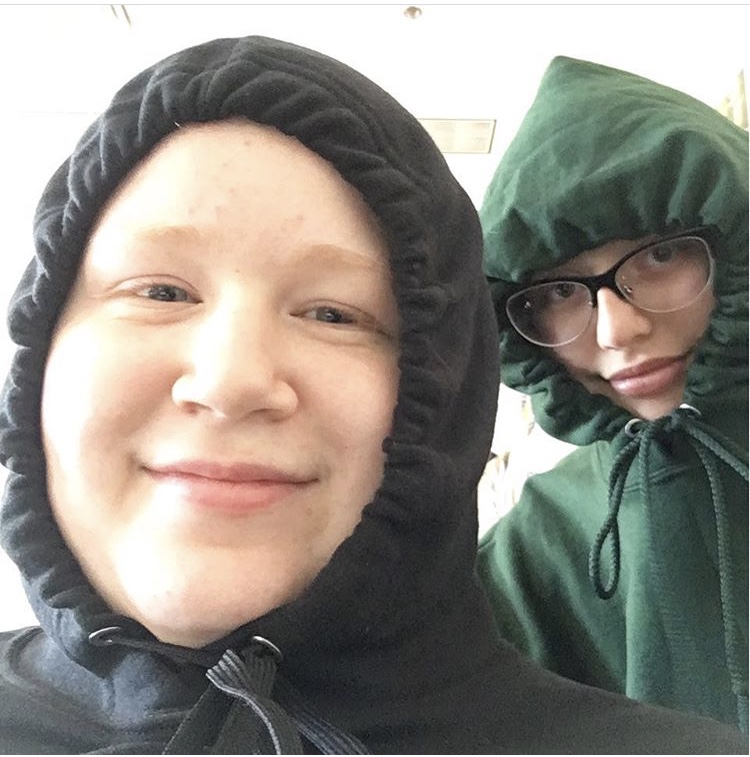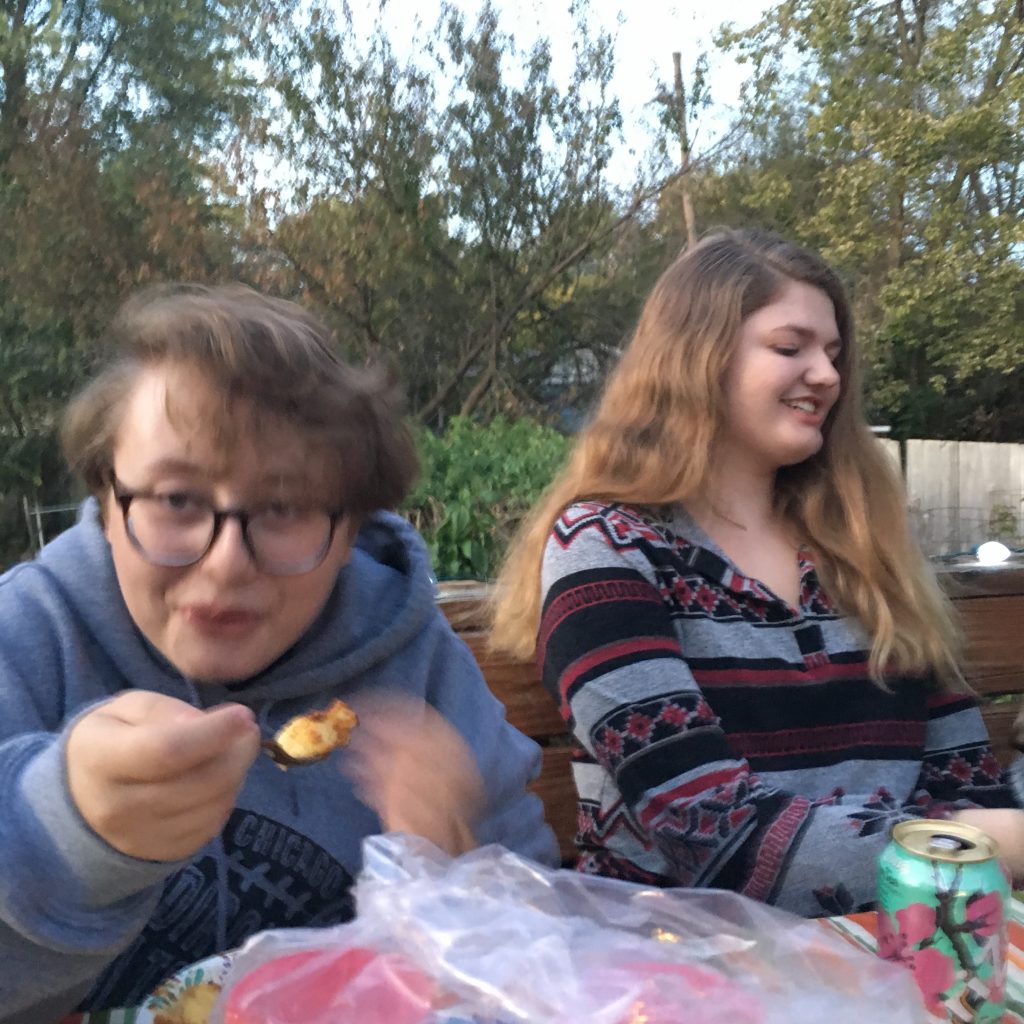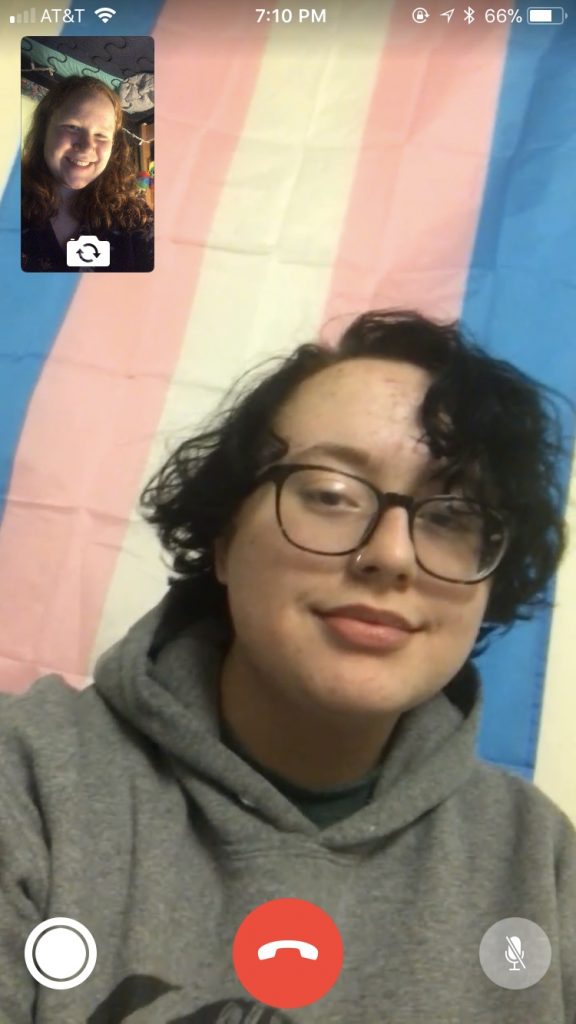Society has a habit of wanting to change people. Individuals would like for everybody else to look like and behave like them. When people do not conform to the traditional ideas of what is acceptable, they become targets for discrimination and dehumanization. It has become easy for the modern person to assume that overt dehumanization is an issue that is locked away in the past, that somehow we as a modern society have moved past such behaviors. But reality would point to a different conclusion. Noah Hanratty is a freshman at the University of Missouri and knows first hand what it feels like to be dehumanized and to have to live in constant fear of how society will treat them. Noah is openly non-binary and uses they/them pronouns to describe themselves. Non-binary means that Noah wouldn’t say that they are male or female; instead, they are “Sitting happily in the middle” (21:37). This identification as non-binary goes against societal norms, in which everyone exists on a gender binary. For most people in society, gender is a check yes or no question, either you are male, or you are female. This exclusion from the social norm would make Noah stand out from other people and unfortunately bring on discriminatory behavior.

This idea of being non-binary was mostly foreign to me before actually meeting Noah. I am a cisgender female, which means I was born a female and that’s how I identify now. During my time growing up and going through school I had been vaguely aware of people who were transgender or non-binary, but the idea of not fitting into the gender binary was never something that directly affected me, so I never thought I had a reason to consider it. However, being unwilling to try and understand the daily struggle that Noah and people like Noah were going through only added to their daily effort to have their identities recognized as valid. To not have your identity be considered valid is a dehumanization tactic to try and either get people like Noah to conform to societal standards or have people remove them from society. Noah’s mother even said, “That she’d never call me by those pronouns” (10:30). It seems to me that tactic that Noah’s mother is using is an attempt to try and have Noah conform to what society says Noah should be.
That conversation was not an isolated incident with Noah’s mother. Noah knows that their mother is “very religiously motivated when it comes to some things. And so she says that basically, she knows where I’m going” (11:48). It appears to me that Noah’s mother is trying to use religion, something that Noah grew up with, as a way to make them feel like how they identified was wrong, that they weren’t allowed to do that. I attend church and have heard the argument that she is making. It’s the idea that God created man and woman and that there is no in-between that can exist. By using religious arguments, she is trying to tell Noah that they need to change or else. It’s a thinly veiled threat that something will happen to them unless they start acting how religion says so. It is these sorts of threats that would make Noah feel unsafe and threatened. These threats are implying that Noah is some sort of “other” that does not belong in society; it’s a dehumanization tactic. It is important to note though that not all people who are religious believe this and behave this way. However, because of this argument that Noah has heard repeatedly from their mother they say, “I don’t feel safe in the church” (11:48). Which is understandable. If someone who claims to represent a particular religion were threatening me with Hell, I wouldn’t feel safe either.
But religion isn’t where Noah’s mother stopped in her attempt to have Noah conform. Noah asked their mother, “If I got married to a woman would you be there? And she said she didn’t know. And so just like that was the turning point” (10:45). This comment would appear to be an attempt by Noah’s mother to show that her support and love is conditional. If Noah doesn’t conform and marry a man, their mother may not come and support them at their wedding. Parents play such a vital role in weddings, so by saying that she might not be their Noah’s mother is saying that her support and by extension love, is dependent on Noah behaving as their mother would want them to. These comments made Noah feel so unwanted that they thought it was necessary to move out of their mother’s house. With the help of a friend Noah packed up all of their things and left the home that they had grown up in so that they could find a place where they felt accepted and validated. The emotional hardship of all of this was apparent for Noah, “You’re my mom, you’re supposed to be there for me” (12:36). By using her support as a tool to try and make Noah say that they are a female, Noah felt that their mother wasn’t doing what she was supposed to do as a mother.
When I first got to hear Noah’s story and hear about the things that were said to them, I was shocked, and I felt terrible. I wanted to be able to go back in time and stop any of this from happening to them. These comments that their mother had made seemed so blatantly dehumanizing and hateful, but I began to realize that it wasn’t just comments like that that would make Noah’s life more difficult. It was also people ignoring their struggle, which I was guilty of as well. I knew there were people when I was growing up and in high school that was transgender or non-binary, but I wasn’t sympathetic to their struggles because I believed it didn’t affect me. By standing by and not standing up for them in my school or not supporting them when they were going through similar experiences at home, I was also guilty of participating in the process of dehumanizing them. In ignoring the struggle of people around me, I was also a perpetrator of making people feel unsafe and unwelcome. I wasn’t creating an environment where it was okay to be whoever you were. Instead, I was perpetuating the idea that if you weren’t like me, then I didn’t have to care about you. Overt acts are not the only form of dehumanization. By ignoring people, ignoring their identity and their struggles, I also participated in the dehumanization process.
I have gone through much of my life believing that discrimination, dehumanization, and bigotry were small isolated issues. Overt hatred of people who are minorities existed primarily in the past. The few events that did occur were not indicative of most of society, and the perpetrators would be quickly apprehended. I was wrong. People go through life every day trying to avoid conflict. Noah describes it as “It’s kinda like when you’re walking down the street, and you see a frat boy and his friends. And you’re standing you’re like, oh no something could happen, something could happen, something could happen. And then when nothing happens, it’s just like a sigh of relief. Like okay, this time everything is fine. But it’s just kind of like you’re waiting for the dam to burst” (06:50). This perpetual fear that something could happen, whether it’s a physical confrontation or hate speech, exists in every moment of Noah’s life. In his film, Night and Fog Alain Resnais says, “There are those who look at these ruins to-day, as though the monster were dead and buried beneath them. … Those who pretend all this happened only once at a certain time and in a certain place — those who refuse to look around them. Deaf to the endless cry” (31:00). This film, in particular, is looking at the concentration camps and the hatred and antisemitism that caused it. He’s arguing that those hatreds still exist today. It’s foolish to believe that any form of hate or discrimination no longer exists.
However, there is hope for things getting better. For Noah, life has changed and improved with college. He’s found supportive friends and teachers that make him feel safe and that people care about them. That doesn’t mean the struggle is over, but things can get better. To continue to make the world a more accepting place Noah says, “I think it involves a lot of listening and trying to understand someone before attacking them” (22:25). By hearing Noah’s story, I’ve been able to better respond to the people around me who face persecution. By listening to people and attempting to understand them, we can begin undoing the process of dehumanization. I can’t fix the problems of dehumanization, but if I try to understand what the people who are facing it are going through and give them a place so that people can hear their voice, I can help make the change.





